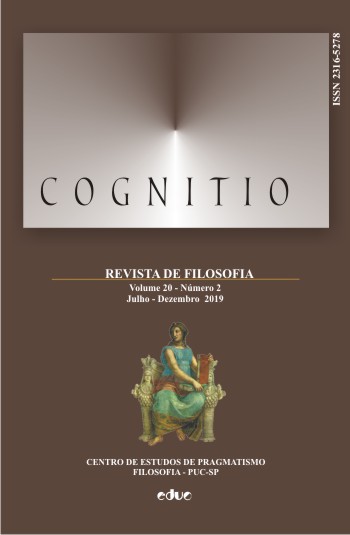Impactos das tecnologias informacionais de comunicação na conduta: contribuições da teoria peirciana de informação
DOI:
https://doi.org/10.23925/2316-5278.2019v20i2p429-445Palavras-chave:
Ação, Autonomia, Informação, Semiótica, Tecnologias informacionais de comunicação (TICs).Resumo
O objetivo do presente artigo é desenvolver uma reflexão acerca de relações existentes entre informação e ação, no contexto das tecnologias informacionais de comunicação (TICs). O problema central que guiará o artigo pode ser assim formulado: Qual é a influência da informação disponível nas TICs na ação autônoma? O direcionamento de pesquisas em relação ao conceito de informação possui geralmente uma orientação técnica, não focalizando questões éticas, ontológicas e epistemológicas, que são igualmente relevantes ao se tratar desse conceito. Em contraste com a orientação técnica vigente, ressaltamos a abordagem proposta por Charles S. Peirce, que caracteriza informação a partir de diferentes perspectivas: lógico-semântica, pragmática e semiótica. Partindo da hipótese que processos informacionais têm uma participação fundamental no direcionamento da ação, investigamos impactos das TICs presentes nas relações cotidianas. Discutimos transformações que as TICs têm possibilitado na relação agente-ambiente, ressaltando recursos computacionais de mineração de dados, que propiciam ações, muitas vezes direcionadas por interesses alheios àqueles dos usuários. Argumentamos que o estudo da informação é importante para entender possíveis implicações das TICs no direcionamento da ação humana.









